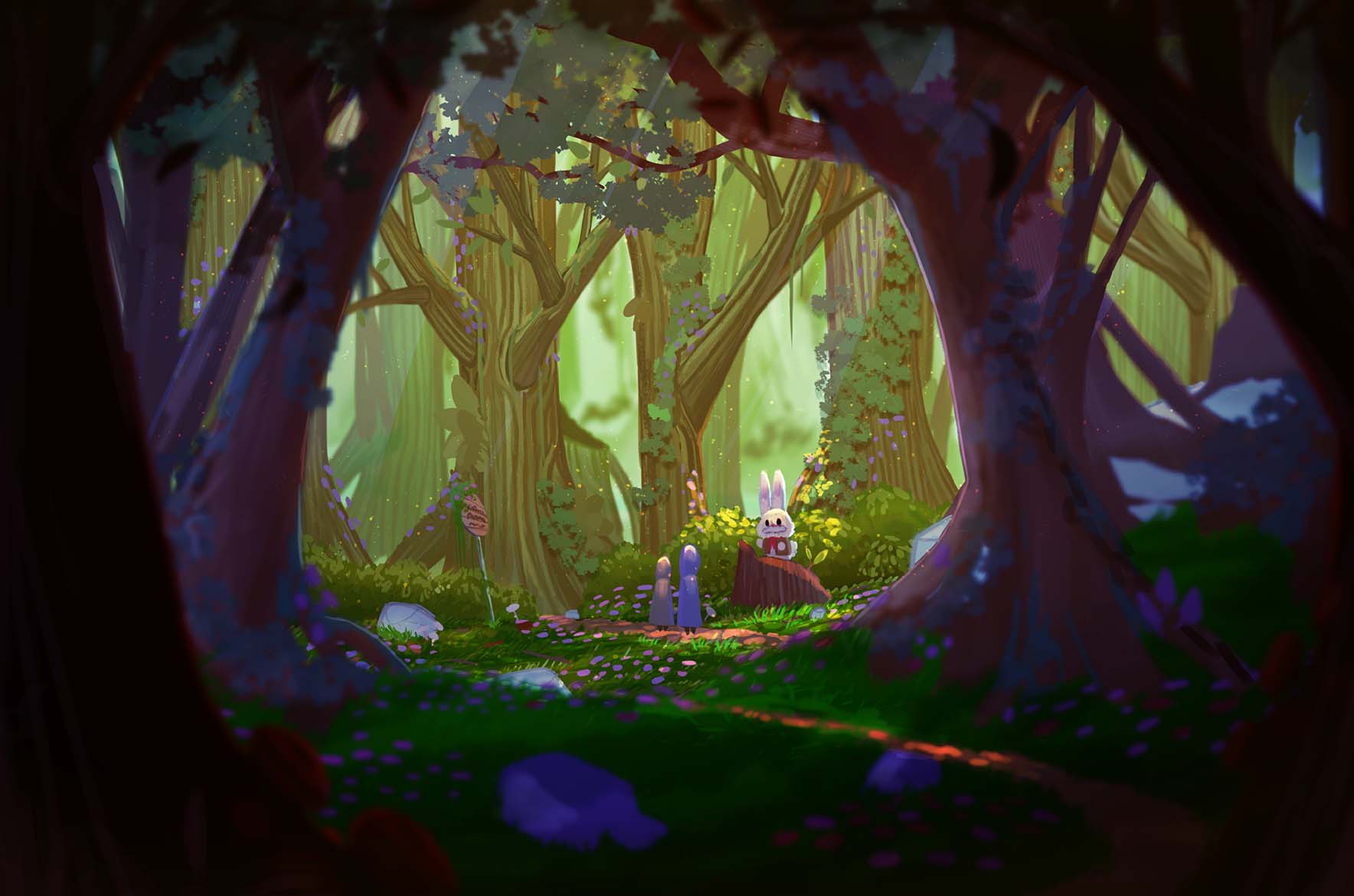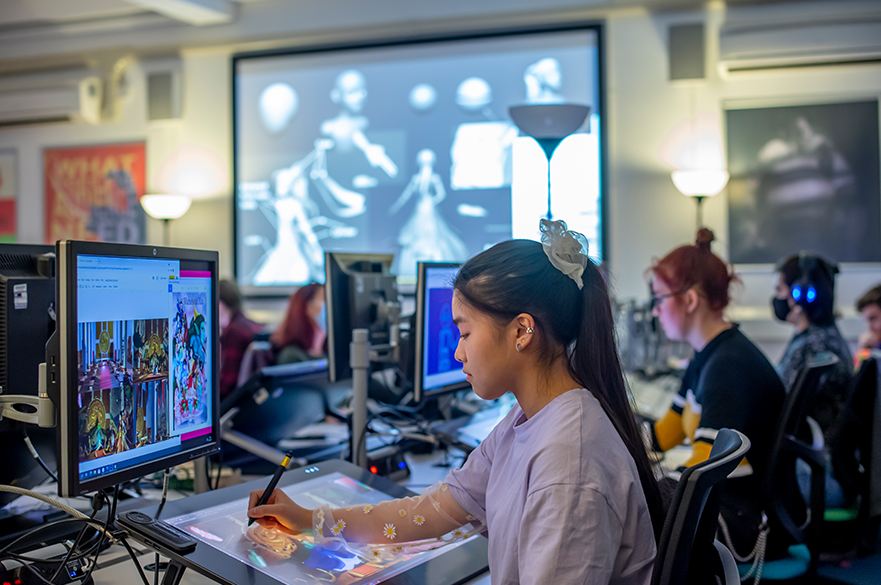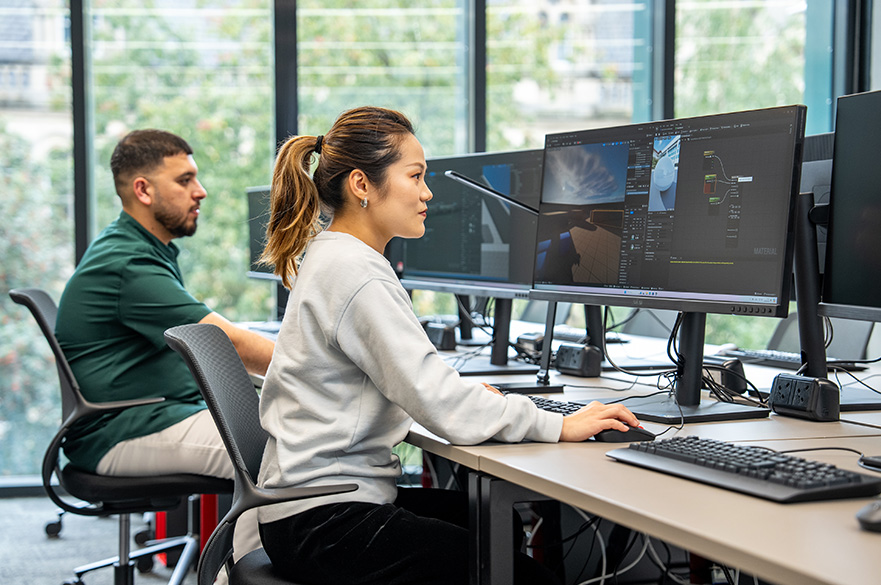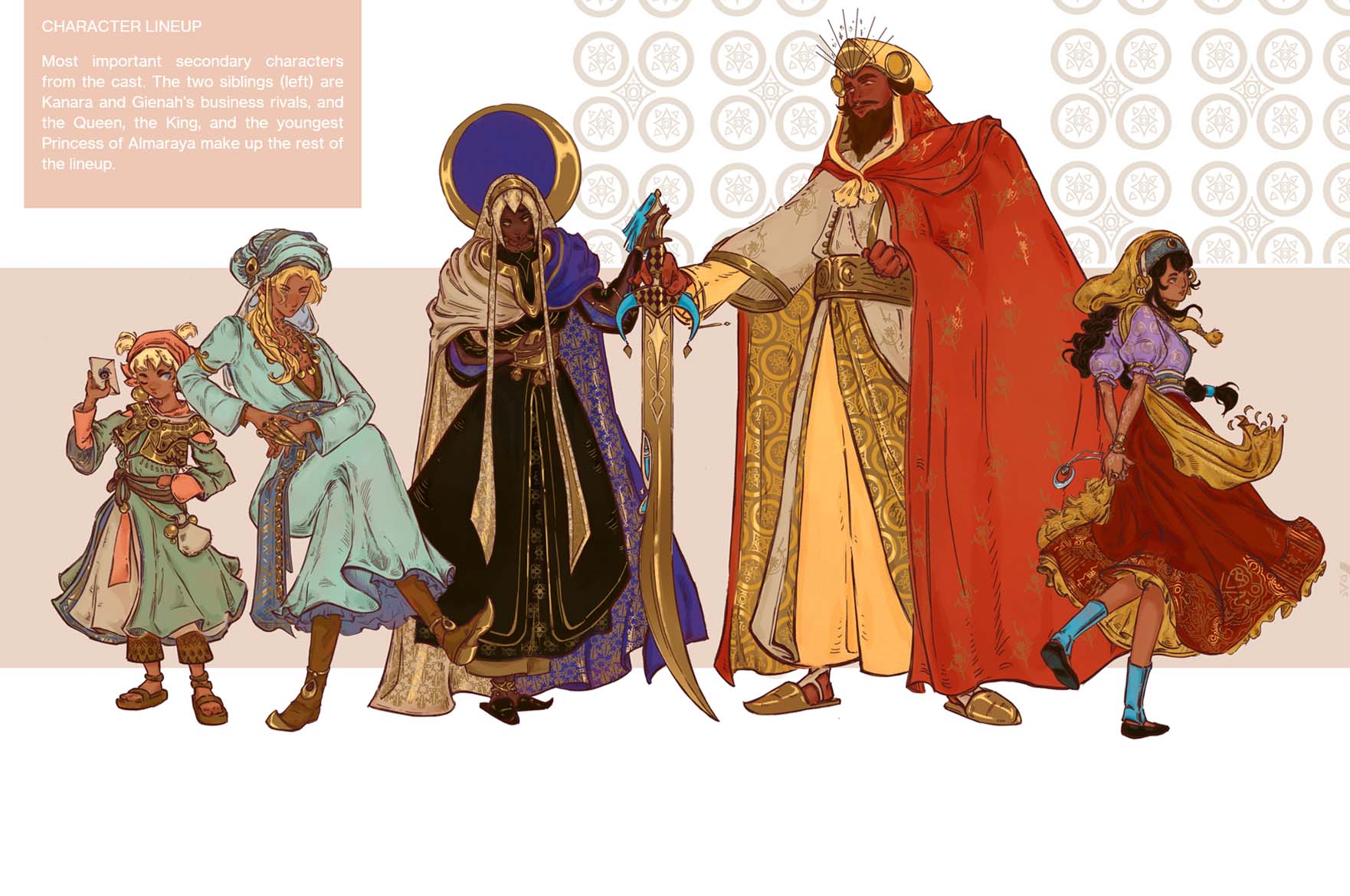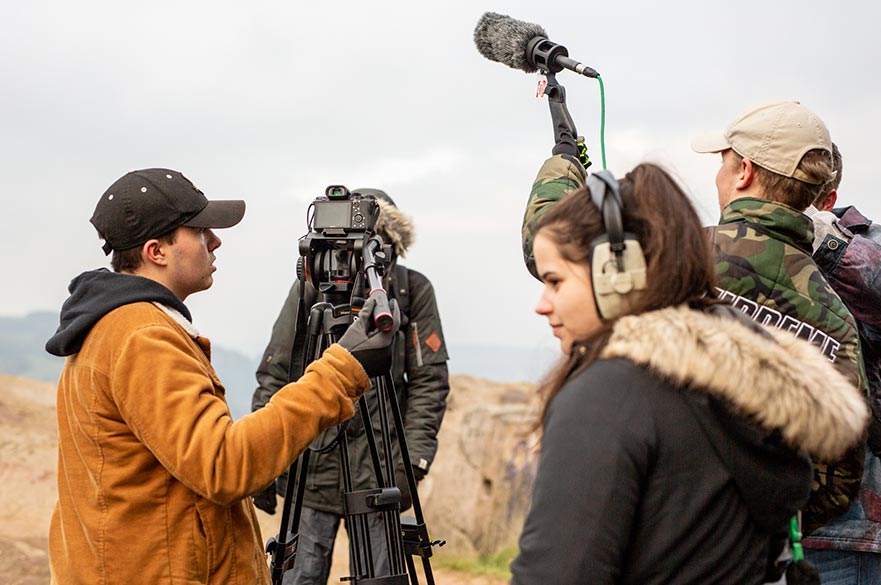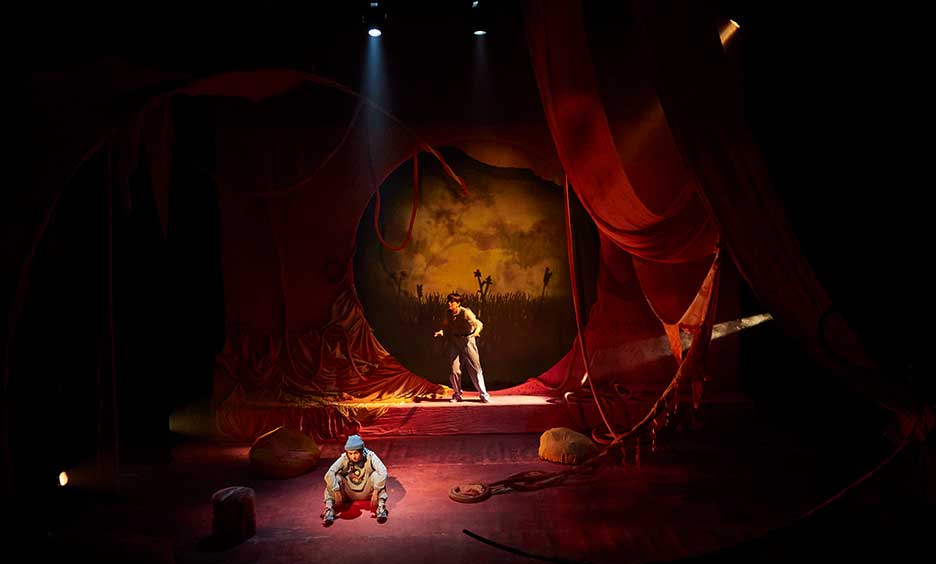This course is in Clearing
Offers from 80 tariff points
About this course
The creative industries are always looking out for the next pool of technicians who can make innovative contributions to the making of films. Our BSc (Hons) Film Technology course combines the main elements of film production with a focus on technical specialisation in cinematography, sound, and editing.
15
What you’ll study
Our BSc (Hons) Film Technology course takes a holistic and practical approach to exploring the professional aspects of filmmaking and will give you skills and experience in making short films, commercials, music videos, and documentaries. With an emphasis on hands-on training, you’ll also learn the importance of all aspects of the film production journey and have access to high-specification digital cameras, a purpose-built virtual production studio, and the latest software applications for post-production editing.
- Craft Skills and Technologies
- Storytelling and Production
- Approaches to Film: Digital Workflows
- Advanced Production
- Emerging Technologies
- Film Crew Collaboration
- Enterprise and Entrepreneurship
There is an opportunity for students to undertake a placement year, and transfer to the Sandwich route, please see further details in the ‘Year Three’ section below.
Craft Skills and Technologies
(40 credit points)
Your introduction to digital film production equipment and techniques, with a special focus on the basics of sound, camera, and editing through practical demonstration and experimentation. In this module, you will create projects using digital filming technology to develop your basic audio-visual communication skills.
Approaches to Film
(40 credit points)
Immerse yourself in a range of theoretical and critical approaches to engaging with film and film cultures. You will develop your awareness through discussion of a range of films, directors and practitioners and examine a breadth of theoretical approaches to writing about and engaging with film.
Storytelling and Production
(40 credit points)
Storytelling is a fundamental building block within the creative industries, critical to content-making for big and small screens. In this module, you will be introduced to the fundamentals of content development and learn how ideas are generated, refined and pitched in professional contexts. You will progressively hone your storytelling skills and work intensely and intensively in key areas of film and television production.
Digital Workflows
(20 credit points)
The module provides you with the opportunity to investigate the fundamental core technical concepts that make up the digital moving image, as well as multimedia and digital film production pipelines and workflows.
You will engage with foundation-level mechanisms and standards essential to image acquisition, reproduction and display.
Film Technology 1
(40 credit points)
In this module, you’ll deepen your understanding of film production technologies while enhancing your skills in digital cinematography, audio capture and design, and post-production editing.
You'll work with digital cameras, lenses, and lighting to develop new aesthetics and techniques. In audio, you'll explore sound design from acoustics to field recording, examining how dialogue and music shape narrative. You'll also refine your editing skills, applying theory and technique to manipulate media and shape film structure, pace, and form.
This module also aligns with the UN Sustainable Development Goals, preparing you for a career in a global industry that values both technical expertise and sustainable practices.
Film Technology 2
(40 credit points)
In this module, you’ll explore studio filmmaking technologies, including virtual production, chroma key, and black box studios. You'll examine their impact on the global film industry and design projects for studio settings.
Through hands-on experiments, you'll develop practical skills while considering ethical, economic, and environmental factors in studio production. Working in teams, you'll create films, complete post-production, and critically evaluate the process—preparing you for the collaborative and evolving world of professional filmmaking.
CoLab: Research, Exploration and Risk-taking
(20 credit points)
Through active participation with team-based problem-solving, you will work together in mixed teams on a project where you will use your creative ideas to generate solutions to the challenge or brief. Your project will allow you to explore outside of your usual frames of reference and to move beyond your comfort zone. You can expect to engage in new conversations as you explore disruptive learning opportunities through participation in unfamiliar creative places and experiments as you embrace new opportunities.
Optional module
You will also choose one optional 20-credit module from:
- Storyboarding
- Motion Graphics
- Digital Matte Painting
- Music Video
- Sound Art & Design
- Open-source 3D Art
- Fashion Photography: Cover Shoot
- Prop Making
Optional Placement Year (Sandwich)
We have an option for all of our students to undertake a placement year (Sandwich) and allow you to decide whether this is right for you once you have completed years 1 and 2 of your course. This time spent working in industry provides our students with crucial work experience, which is highly prized and much sought after by employers upon graduation. If you are successful in securing a placement you will have the chance to gain an additional Certificate or Diploma in Professional Practice, dependent on duration.
The additional placement year incurs a fee. For international students considering the transfer to the 4-yr SW route it’s important to seek advice from the International Student Support team and the Home Office regarding any potential visa implications and costs. For UK students, advice should also be sought regarding SLC eligibility, if applicable.
* If you choose to take the sandwich route option, you will still need to apply for this course with the full-time UCAS code: W610
Personal Project - Film Technology
(40 credit points)
This module provides you with the opportunity to undertake a sustained investigation into a specific area of creative technology that builds on your previous knowledge, experience and skills. You will achieve this by undertaking a self-initiated research project with a practical creative or technical outcome supported by tutor supervision.
Enterprise and Entrepreneurship: Personal Portfolio
(20 credit points)
Film Crew Collaboration
60 credit points)
Building on the collaborative skills you have developed in Year Two, you'll have the opportunity to work with BA Filmmaking and BSc Television Production students to make a screen production to professional standards and to take on a role with an emphasis on their chosen career field in television.
We regularly review and update our course content based on student and employer feedback, ensuring that all of our courses remain current and relevant. This may result in changes to module content or module availability in future years.
Video Gallery
How you're taught
Teaching and learning experiences will include:
- Lectures
- Staged briefings
- Independent learning
- NOW online learning portal
- Demonstrations
- Tutorials
- Seminars
- Team working
- Verbal and visual presentations
- Live projects
- Study trips
- Peer group activities
20% of your final degree mark will be based on your work in Year 2, and 80% from your work in your final year.
Collaboration across courses
This course offers our new innovative collaboration module. This gives you the opportunity to work collaboratively with your contemporaries from a range of different art and design subjects and beyond. You’ll be working alongside artists, designers, photographers, illustrators, animators, and filmmakers on daring and creative projects that prepare you for a rewarding career in your chosen industry. Your project will allow you to explore how creativity can make an impact in society, as you choose a theme of sustainability, social justice, enterprise and innovation or community.
Exchange opportunities
If you’re thinking about studying part of your degree abroad, the course has exchange agreements with a number of institutions around the world.
Exchanges take place in Year Two of the course. You’ll receive guidance from the University about where you can study, and help in completing your application and arranging your exchange.
Showcase
You will be given the opportunity to exhibit your work during your time at NTU to members of the creative industries. Visit our ‘We Are Creatives’ showcase to take a look at the work of this year's graduating students’.
Careers and employability
Employability is a key focus of this course, with modules including initiatives such as live projects and trips, and the opportunity to exhibit your work, which will help to raise your profile and enhance your future career.
This course will equip you with the skills and knowledge you need to forge a career in a variety of technical or creative roles and productions. This could include roles such as runner, camera assistant, sound recordist, editing assistant, or production coordinator. You could be working with major production studios on the sets of blockbuster films and award-winning TV series.
Connecting with industry and work placement opportunities
Industry professionals will visit the course to guest lecture and share their experiences. Live projects and competitions will help you to gain real experience of the industry, make contacts, and build your portfolio and CV.
You’ll be encouraged to undertake short periods of work experience alongside your studies. You will normally complete these placements during holiday periods, but you will have the option of taking up to two weeks out of term time, which you can negotiate with your tutor.
In addition, you’ll also have the opportunity to complete a longer work experience or placement, with the chance to gain an additional Diploma or Certificate in Professional Practice, dependent on duration. Course tutors and our Employability team are on hand to support you in applying for placement and professional practice opportunities.
YouFirst – working with our Employability team
Studying a creative degree in a large university has many benefits, none more so than having access to a large employability team.
Our friendly, experienced careers consultants will work closely with you at every stage of your career planning, providing personal support and advice you won't find in a book or on the Internet. You can benefit from this at any time during your studies and for up to three years after completing your course.
Creative Industries Federation
We are members of the Creative Industries Federation (CIF), which means students in the Nottingham School of Art & Design have the opportunity to sign up to free student membership. Creative Industries Federation are an organisation that represents, champions and supports the UK’s creative industries and membership grants students exclusive access to their selection of resources and events to help advance your career and connect with industry.
Campus and facilities
Our Film facilities are based in the new Design and Digital Arts Building.
Our new Design & Digital Arts Building will place Nottingham as a UK hub for film, television, animation, UX design, games design, graphic design and more.
You'll have access to industry-standard facilities which include a virtual production studio, an in-camera VFX studio and a black box studio, as well as collaborative studio spaces, future technology suites and exhibition spaces.
Entry requirements
This course is in Clearing
Looking for a place in Clearing? We are accepting application and would love to hear from you!
UK students
This course is in Clearing
Looking for a place in Clearing? We are accepting applications and would love to hear from you!
Clearing requirements
From 80 UCAS tariff points from up to 4 qualifications.
To discuss our entry requirements and see what we can offer you, call us now on +44 (0)115 848 6000. Alternatively, if you already have your qualifications, apply online via our Clearing Application form.
Preparing for results day? Beat the queue and sign up for NTU Priority for up-to-date information about all things Clearing. You’ll get an offer ahead of Clearing, subject to you achieving the required grades on results day.
To find out what qualifications have tariff points, please use our tariff calculator.
Additional requirements for UK students
There are no additional requirements for this course.
Contextual offers
If you don’t quite meet our entry requirements, we might be able to make you a lower offer based on a range of factors, including your background (such as where you live and the school or college you attended), your experiences and your individual circumstances (you may have been in care, for example). This is called a contextual offer, and we get data from UCAS to help make these decisions. We do this because we believe everyone with the potential to succeed at NTU should have the opportunity to do so, no matter what barriers you may face.
Meeting our entry requirements
Hundreds of qualifications in the UK have UCAS Tariff points attached to specific grades, including A-levels, BTECs, T Levels and many more. You can use your grades and points from up to four different qualifications to meet our criteria. Enter your predicted or achieved grades into our Tariff calculator to find out how many points your qualifications are worth.
Other qualifications and experience
NTU welcomes applications from students with non-standard qualifications and learning backgrounds, either for year one entry or for advanced standing beyond the start of a course into year 2 or beyond.
We consider study and/or credit achieved from a similar course at another institution (otherwise known as credit transfer), vocational and professional qualifications, and broader work or life experience.
Our Recognition of Prior Learning and Credit Transfer Policy outlines the process and options available for this route. If you wish to apply via Recognition of Prior Learning, please contact the central Admissions and Enquiries Team who will be able to support you through the process.
Getting in touch
If you need more help or information, get in touch through our enquiry form.
International students
This course is in Clearing
Looking for a place in Clearing? We are accepting applications and would love to hear from you!
Clearing requirements
From 80 UCAS tariff points from up to 4 qualifications.
To discuss our entry requirements and see what we can offer you, call us now on +44 (0)115 848 6000. Alternatively, if you already have your qualifications, apply online via our Clearing Application form.
Preparing for results day? Beat the queue and sign up for NTU Priority for up-to-date information about all things Clearing. You’ll get an offer ahead of Clearing, subject to you achieving the required grades on results day.
We accept equivalent qualifications from all over the world. Please check your international entry requirements by country.
English language requirements: See our English language requirements page for requirements for your subject and information on alternative tests and Pre-sessional English.
Additional requirements for international students
If you need help achieving the academic entry requirements, we offer a Foundation preparation course for this degree. The course is offered through our partner Nottingham Trent International College (NTIC) based on our City campus.
English language requirements
View our English language requirements for all courses, including alternative English language tests and country qualifications accepted by the University.
If you need help achieving the language requirements, we offer a Pre-Sessional English for Academic Purposes course on our City campus which is an intensive preparation course for academic study at NTU.
Other qualifications and experience
If you have the right level of qualifications, you may be able to start your Bachelors degree at NTU in year 2 or year 3. This is called ‘advanced standing’ entry and is decided on a case-by case basis after our assessment of your qualifications and experience.
You can view our Recognition of Prior Learning and Credit Transfer Policy which outlines the process and options available, such as recognising experiential learning and credit transfer.
Sign up for emails
Sign up to receive regular emails from the International Office. You'll hear about our news, scholarships and any upcoming events in your country with our expert regional teams.
Getting in touch
If you need advice about studying at NTU as an international student or how to apply, our international webpages are a great place to start. If you have any questions about your study options, your international qualifications, experience, grades or other results, please get in touch through our enquiry form. Our international teams are highly experienced in answering queries from students all over the world.
Policies
We strive to make our admissions procedures as fair and clear as possible. To find out more about how we make offers, visit our admissions policies page.



